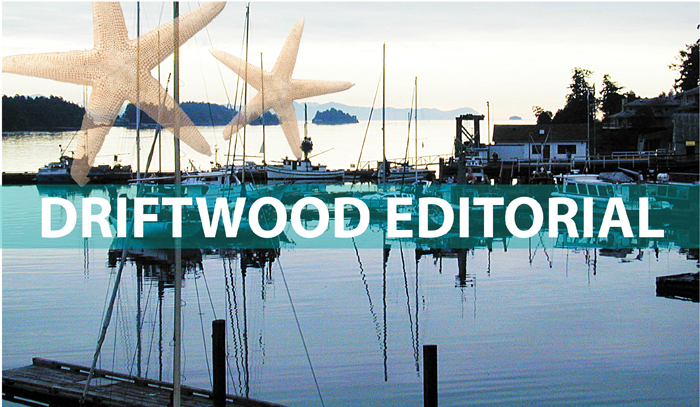Fall and winter days often mean darkened skies on Salt Spring, and not just from the rain clouds scudding in.
That’s when islanders cleaning up their yards of branches and contractors who have been stacking up slash can finally light the match. Low-pressure days mean woodsmoke haze is a frequent sight.
The updated provincial Open Burning Smoke Control Regulation that went into effect last September theoretically put a damper on burning as a way to eliminate those piles. In practice not much has changed so far, as recent complaints about daily smoke in the Beddis Road area prove. The winds are due to shift, however, as provincial authorities with the Ministry of Environment and Climate Change Strategy get more serious about implementation and local burning bylaws get updated to reinforce the new parameters.
With Salt Spring falling under the high sensitivity zone for air pollution, homeowners and contractors alike are going to have to get used to a much-reduced burning calendar. At the same time, islanders are being urged to follow FireSmart principles to reduce wildfire hazards. A community-wide solution is the most cost-effective and environmentally efficient answer, and recent funding initiatives suggest such a solution is in reach.
Squamish Fire Rescue launched a Community Chipper Days pilot project in July 2018 using $10,000 in FireSmart grant funding. Residents were encouraged to FireSmart their property and bring their yard waste to the curb where it was chipped and disposed of for free.
The B.C. government also introduced the Community Resiliency Investment Program in 2018 to fund FireSmart activities. Applicants for the 2020 program with a demonstrated higher risk of wildfire were invited to apply for up to $150,000. Although the Capital Regional District was not successeful in getting funding on behalf of Salt Spring Fire Rescue this year, they could apply again to finance a wood chipper, either for Salt Spring alone or a mobile unit that could move through CRD member communities. It’s also possible there’s other grant funding out there.
While islanders are used to dealing with wood waste on their own terms, the changing climate shows the easy way is no longer viable and so a community-wide approach is in order. Action on that item should be a top priority for local agencies in 2020.

